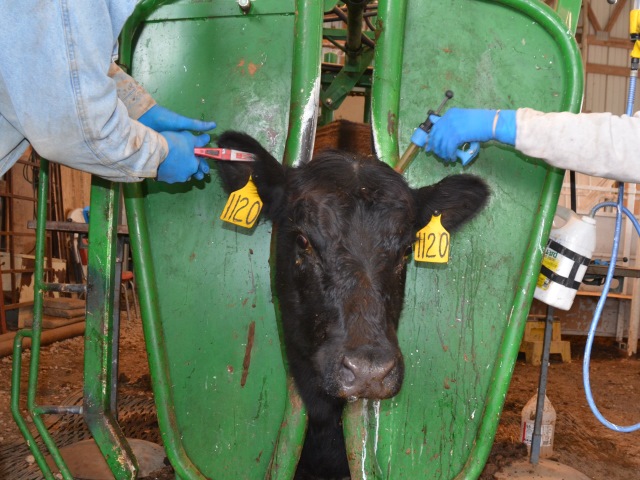Immunity only develops after an animal has been exposed to a specific organism causing a disease. Due to this, pharmaceutical factories (Onderstepoort) are preparing and have the available vaccines.

If an animal is infected with a disease-causing organism, the animal will become ill or can die. There are two types of vaccines; the live and the dead vaccines. The differences between live and dead vaccines:
Dead vaccines are distributed as suspensions, and need only to be shaken before used. Live vaccines are freeze-dried into a powder form. You can only add sterile water.
- Dead vaccines can be stored at 20°C. while live vaccines must be kept at 4°C inside a refrigerator.
- Immunity against dead vaccines is of a short period. Repeated vaccination is therefore recommended.
- Dead vaccines normally do not cause a fever reaction and are safe to administrate to pregnant and working animals.
Click here to view a video that explains Killed Vaccine Handling, Dosing and Administration.
Handling of Vaccines
Vaccines are a highly perishable product, and they should be handled with great caution.
- Store vaccine in the correct way.
- Keep in a cooler bag when transporting it.
- Avoid unnecessary exposure to direct sunlight.
- Only use sterilised syringes and needles when vaccinating
- Change needles as soon as possible if practical
- Correct dose must be given, using the correct route of vaccination
- Take precaution not to inject oneself by mistake
- Make sure that all equipment used are sterilised and stored correctly after vaccination.
Pre-Planned Programmes
Vaccines should be given at strategic times of the year or season. These times vary depending on the vaccine and particularly on the disease, which you are trying to control.
When do You Need to Vaccinate or Dose?
The response to this question depends on the individual farm, age of an animal, previous disease problems, whether the herd/flock is open or closed, geographic region of the country, soil type, diet, and the flock economics.
Example: Vaccination and Dosing programmes for Agricultural College Grootfontein, Middleburg



